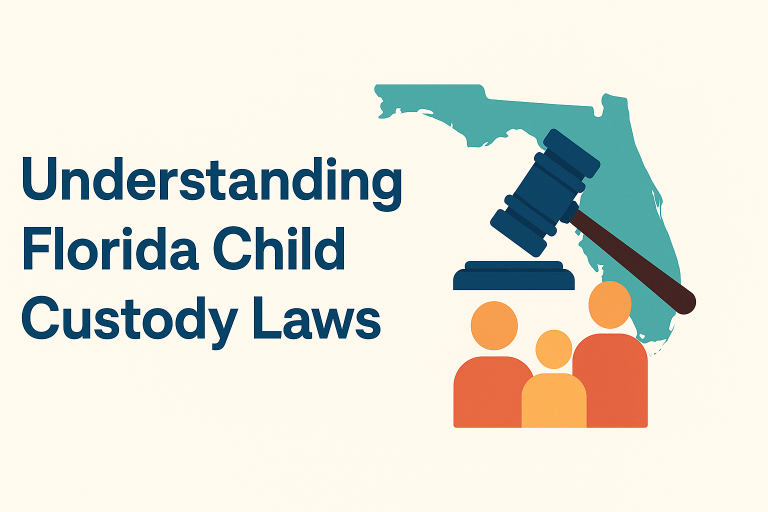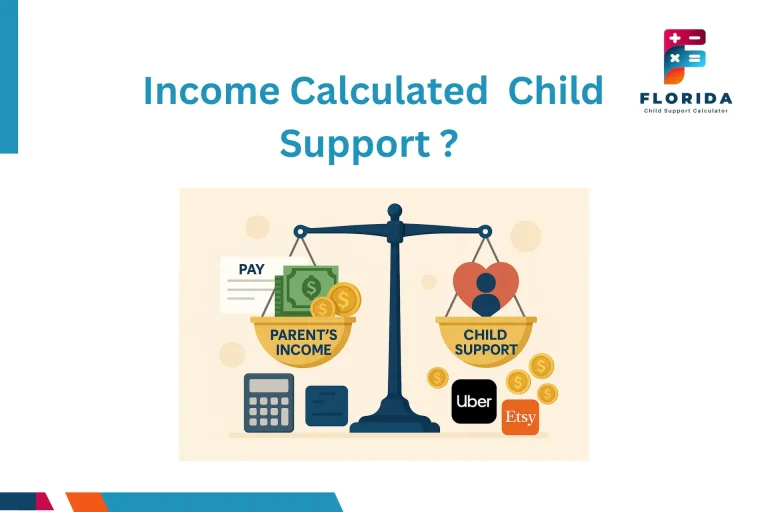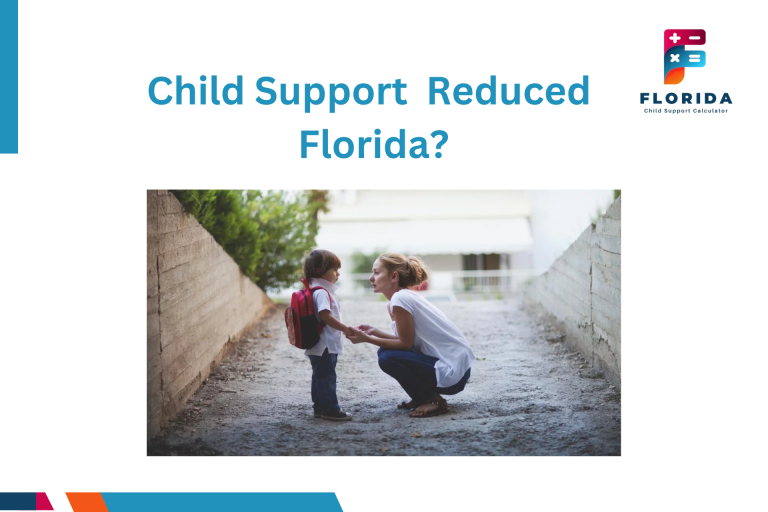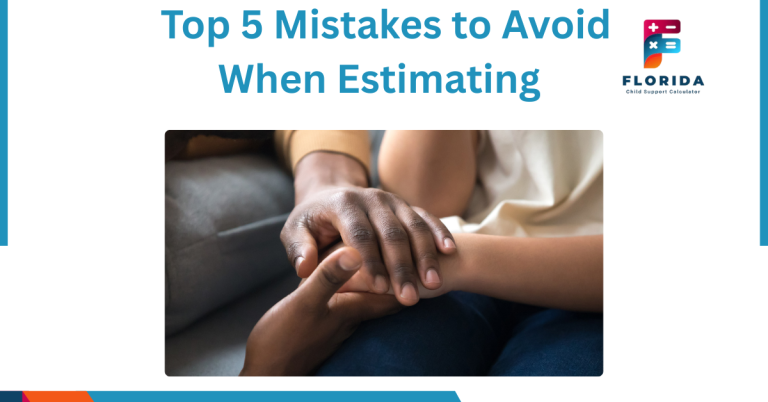Is Florida a Mother or Father-Friendly State for Custody?
Is Florida a mother or father-friendly state for custody? That’s the big question when parents split and things get messy. Custody in Florida isn’t about picking favorites but what’s best for the child. But let’s be real, many parents feel like the system leans one way. Is that true? Or just courtroom myths passed around like bedtime stories? In this guide, we’ll explain how Florida custody laws work, what judges look for, and whether moms or dads have the upper hand.

If you’re just starting your custody journey, check out how Florida’s child support guidelines might affect your case. And if you’re curious about how income fits in, we’ve covered how income is calculated in Florida child support, too.
Understanding Florida Child Custody Laws

Florida doesn’t use the word “custody” the way movies do. Instead, the law talks about parental responsibility and time-sharing, fancy words for who makes decisions and with whom the child stays. Judges don’t play favorites. They want what’s best for the child.
If you’re just beginning the process, it helps to understand how Florida’s parenting plan rules shape every custody case. A clear plan means less courtroom drama and more peace for everyone. Parents are expected to work together, unless there’s a serious reason not to.
Even before the court, Florida encourages parents to settle these issues calmly. You can learn how the courts calculate child support as part of this whole parenting puzzle.
What Does “Custody” Mean in Florida?
In Florida, custody means two things:
- Time-sharing (who the child lives with and when)
- Parental responsibility (who makes major decisions)
Judges want both parents involved, unless something big like abuse or neglect makes that unsafe. That’s why you’ll often hear about “equal parenting” instead of full custody.
It’s smart to avoid common mistakes when building your plan. Here’s a quick look at what not to do when estimating child support, it connects directly to how time is split.
Does Florida Favor Mothers in Custody Cases?

Some people say Florida favors moms. But that’s not what the law says. Today, courts want both parents to have time with their child, unless one parent is proven unfit. But yes, many people still feel there’s a “mother’s edge.”
If you’re wondering what judges consider, this detailed breakdown of custody decisions shows the truth. Judges look at things like safety, parenting roles, and cooperation, not gender.
Even though more mothers end up with more time-sharing, that’s often because they were the primary caregiver before the split. For help balancing those roles, here’s how custody and finances intersect in Florida divorces.
Is There Still a “Mother Bias” in Florida Courts?
Back in the day, Florida had the “tender years doctrine,” which meant young kids stayed with their moms. But that’s gone now. Today, the law is clear: both parents matter. Still, moms often win more time, not because of bias, but routine.
At the start of the process, it’s helpful to understand how child support is paid in Florida since payments are tied to time-sharing. Courts aren’t handing out favors; they’re looking at parenting performance.
If you’re planning to claim back support, especially if you’re the father, there’s a process. See how retroactive child support works in Florida.
Father’s Rights in Florida Child Custody

Florida doesn’t hand out special treatment to either parent, but many fathers still feel left out. The truth? Dads have equal rights on paper, but in real life, they must take strong legal steps to use them. Judges want active, responsible fathers who are ready to share parenting time and decision-making.
If you’re a dad trying to understand your position, take a look at what impacts child support calculations in Florida. It ties directly into how much time your child spends with you. And if you’re still unsure about the court’s fairness, this breakdown of custody decision factors offers helpful insight.
Legal Rights of Fathers in Custody Battles
Fathers in Florida have the right to seek 50/50 time-sharing, equal say in education, health care, and more. But here’s the catch if you’re not married to the child’s mother, you’ll need to establish legal paternity first.
Sometimes, dads assume they’re “just out of luck.” But that’s not true. Courts consider many things, including a parent’s history, availability, and parenting record. Understanding the common mistakes in estimating support can also help dads prepare better.
You can also get a sense of how judges measure stability by exploring how income is calculated for support in Florida. It’s all part of showing you can take care of your child.
Steps Fathers Should Take to Win Custody
- Establish paternity (if unmarried)
- Show you’ve been active in the child’s life
- Keep records of school visits, doctor check-ins, and texts
- Follow all court orders and stay respectful
- Propose a solid parenting plan with fair time-sharing
Being present isn’t enough. You have to prove it with details. One place where dads often fall short? Not submitting a clear parenting schedule. Florida courts rely on things like the child support worksheet to build those plans.
And remember, support isn’t just about money, it’s about time, effort, and being a stable parent. You can check how Florida courts weigh parenting time to understand what matters most.
Shared Parenting vs. Sole Custody in Florida

Florida prefers both parents to stay involved; that’s called shared parental responsibility. But sometimes, only one parent gets the final say. That’s sole custody, and it happens when the court believes shared parenting isn’t safe or healthy for the child.
Most parenting plans aim for fairness. If you’re planning yours, this Florida child support worksheet is a great place to start. It ties time-sharing and finances together in a way that’s easy to follow.
Many people also wonder how parenting and finances work after divorce. You’ll see they’re deeply connected; the more time you have with your child, the more input you have in their life.
What Is Shared Parental Responsibility?
Shared parenting means both parents make big decisions like school, health care, or travel together. Judges support this when both parents are stable and cooperative.
To help you plan better, see how Florida uses a calculator to figure child support based on time-sharing. It shows how closely parenting time and financial support are linked.
And in case you’re unsure how forms play a part, Florida’s child support forms are part of every parenting plan.
When Is Sole Custody Granted in Florida?
Sole custody isn’t common in Florida. But if a parent is abusive, addicted, or completely missing, the court steps in. In these cases, the judge gives one parent full responsibility to protect the child.
At the beginning of such cases, knowing what judges consider in child support cases helps a lot. It’s not just about past behavior, it’s about what’s best moving forward.
Even in tough situations, courts may still offer limited contact with the other parent. If that happens, modifying support later may also be possible, especially if the parenting schedule changes.
What Factors Do Florida Judges Consider in Custody Cases?

Florida judges don’t flip coins to decide custody. They follow a list of legal factors, things like your child’s needs, your parenting skills, and your ability to work with the other parent. Every case is different, but the goal stays the same: what’s best for the child.
Before going to court, many parents look at what judges consider in child support cases. It gives clues about how judges think and what they want to see.
Also, how you handle money matters, too. If you’re not clear on how child support fits in, the Florida child support calculator connects time-sharing with financial expectations.
The “Best Interests of the Child” Standard Explained
This phrase isn’t just fancy court talk. It means judges look at who can give the child a safe, loving, and steady life. They’ll check who does homework, who makes doctor visits, and who supports the child’s school and routines.
At the heart of it, they want fairness, not favoritism. If you’re unsure how things like time-sharing and money are measured, check how child support is estimated in Florida to avoid common pitfalls.
It also helps to prepare the right paperwork. Florida’s official child support forms are part of every parenting case, so don’t skip them.
Parental Fitness, Stability, and Involvement
Judges don’t just want love, they want proof. Are you involved in your child’s life? Do you provide a clean home, meals, and steady school attendance? Parental fitness includes Florida mental health, emotional connection, and even your ability to cooperate.
A parent who shows up late, skips communication, or acts hostile may lose points. That’s why understanding the full Florida custody worksheet is so important; it keeps things fair on both sides.
If income or job loss is affecting your side of the case, see how child support may be reduced when parenting situations change.
How Income, Housing, and Stability Affect Custody

In Florida, the court doesn’t just care if you love your child. They want to know if you can support them. That means showing a steady job, a safe home, and a lifestyle that keeps the child healthy and happy. Love matters, but so does proof.
If you’ve ever wondered how your income will be used in court, this breakdown of how income is calculated in child support will help. It ties into how much time you get with your child.
And if things have changed since your original court order, such as a job loss or move, it’s smart to review when child support can be reduced in Florida.
Is Income a Deciding Factor in Florida Custody Cases?
Judges won’t pick the richer parent just because they make more money. But yes, income affects what you can provide: food, school, clothes, and medical care. If you’re asking for more time with your child, you need to show you’re ready for the responsibility.
Sometimes parents over- or underestimate their income. That’s where mistakes happen. To avoid those, go through common support estimation mistakes before the court.
It also helps to compare both parents’ support share using the Florida child support calculator. It gives a clearer picture of what’s fair.
The Role of Job Stability and Home Environment
Stability isn’t about being rich; it’s about being reliable. Judges look at whether your job is steady, your home is clean, and your child has a bed, not a couch. Moving around too much or missing school pickups? That can count against you.
One way to stay ahead is to use the Florida child support worksheet to build a solid parenting plan that shows you’re dependable.
If your living or work situation changes, you might also need to revisit how support payments get modified to match your new reality.
Florida Custody Statistics and Real-World Trends

The numbers don’t lie, and they tell a different story from rumors. Even though Florida law is gender-neutral, real-world stats show mothers still get more parenting time in many cases. But that doesn’t mean courts are unfair, it means roles before separation still matter.
When parents agree on a plan, courts usually accept it. Most Florida custody outcomes are settled without a fight. But when parents can’t agree, the judge looks at every detail, including time-sharing and income.
You can see how Florida builds custody outcomes by looking at their child support worksheet, which reflects time, income, and parenting input.
Custody Award Data in Florida by County
Different countries show different trends. In places like Broward or Miami-Dade, shared parenting is more common. But in rural counties, courts may lean toward the parent who handled most parenting before the split, often the mom.
If you’re comparing situations, it helps to know how parenting time connects to support in your area. Even if the outcome is 60/40 or 70/30, support payments change based on that split.
Also, some counties publish recent stats, and you can request info if needed. Use that when building your case or submitting child support forms in Florida.
Custody Stories and Advice from Real Florida Parents

Reading the law is one thing. Living through a custody case is another. Real parents across Florida share a mix of hope, stress, and lessons from the courtroom. Some say they were heard, others feel the system leaned toward one side, but most agree: being prepared makes a big difference.
Before your case, it’s smart to understand what judges in Florida consider during custody and support decisions. That way, you don’t rely only on stories; you use facts.
And remember, your parenting plan matters. Florida’s support worksheet can help organize time-sharing, income, and what your child needs day-to-day.
What Reddit and Quora Say About Gender Bias
Many dads on Reddit and Quora feel like they’re walking into court, already losing. But when they follow the rules, like filing for time-sharing early, staying involved, and showing up prepared, many win equal time.
One reason some parents feel discouraged is that they don’t know how support is figured out. You can avoid confusion by reviewing how Florida calculates child support based on parenting time.
Forums show that moms and dads both struggle when plans aren’t clear. If your time-sharing or income has changed, here’s what to know about modifying child support.
Common Mistakes Parents Make in Court
Showing up without a plan? That’s mistake #1. Others include bad-mouthing the other parent, missing deadlines, or underestimating how serious the judge is. The court wants to see calm, organized, child-focused parenting, not drama.
Avoiding paperwork issues also helps. Start by filling out the right Florida child support forms so nothing delays your case. These forms match the parenting plan and income data that our clients need.
And don’t forget, any change in your parenting role or finances can affect outcomes. That’s where tools like the child support calculator guide come in handy, before court, not after.
Frequently Asked Questions (FAQs) About Florida Custody
Let’s clear up the confusion. Florida’s custody process can feel like a puzzle, but once you break it down, it starts to make sense. Parents often ask what rights their child has, how support changes work, or what happens if one parent moves away.
To get started with the legal basics, go through the Florida child support calculator guide. It shows how parenting time, income, and responsibilities all connect, just like puzzle pieces.
If your plan needs changes down the road, make sure you understand how child support can be modified when life doesn’t go exactly as planned.
Can a Child Choose Which Parent to Live With in Florida?
Kids don’t get the final say in Florida, but judges can listen to their opinion if the child is mature enough. Usually, teens around 13 or older are taken more seriously, but it’s just one part of many things judges review.
The court always focuses on what’s best for the child. If you’re adjusting a plan based on this, check how Florida calculates parenting time and ties it to support.
And in case you’re filing a change after the first order, it’s helpful to review how custody modifications in Florida are handled legally.
What Happens If One Parent Moves Out of State?
Moving can shake up the whole parenting plan. If a parent wants to relocate 50 miles or more, Florida law says they must give notice and either get the other parent’s approval or a court order.
These moves affect time-sharing and support. If parenting time changes, so will financial support, which is where this child support worksheet plays a big role.
And if the move changes custody entirely, courts will reconsider everything, including whether to reduce support or rewrite the schedule from scratch.
Final Thoughts: Is Florida Truly Gender-Neutral in Custody Decisions?
So, is Florida a mother or father-friendly state for custody? The answer is… it depends on how ready you are. Florida law doesn’t pick sides based on gender. It looks at effort, history, planning, and what’s best for the child, always. Moms and dads both have a shot. But only if they show up prepared.
If you’re planning your next steps, make sure you’ve filled out the right child support forms for Florida. These forms help the court see the full picture.
And when time-sharing or income shifts, don’t wait. Learn how to modify child support properly so everything stays fair and legal for you and your child.






